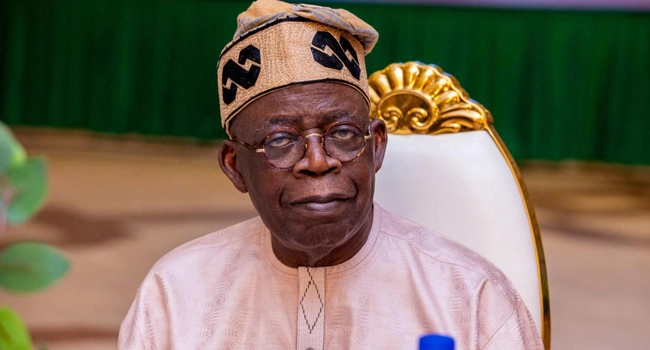
The National Association of Nigerian Travel Agencies has written a letter to President Bola Tinubu, seeking to see him over the trapped funds of foreign airlines.
The President of the National Association of Nigerian Travel Agencies, Susan Akporiaye, disclosed this to our correspondent in Abuja recently.
She stated that NANTA had written a letter seeking an audience with the President, though no time had been fixed for the meeting.
She said, “We have written to meet with him, but I don’t know when we are going to see him. That information is actually left for him to see our letter and request for us to come with him.”
Akporiaye clarified that the Nigerian government was not deliberately withholding funds from the airlines’ repatriation efforts.
According to the NANTA president, the scarcity of foreign currency, particularly dollars, is due to the reduced availability of such currency in government reserves.
“Most of the foreign currency is now in the hands of individuals rather than in the government reserves, which presents a challenge when it comes to addressing trapped funds.
“So, the trapped fund issue is really a big issue. If you remember two weeks ago, when President Bola Tinubu said CBN should inject dollars into the market because the gap started widening again from the black market. Just after saying that it should be injected; the Acting CBN said there was no money to inject. That is what exactly is causing the trapped funds.
“The trapped fund is not the Nigerian government deliberately refusing to allow the airline to repatriate their funds. This foreign currency is not there as it used to be,” she explained.
According to Akporiaye, the country cannot print dollars, because it is not its currency.
“If it was naira, they would have told the printing and minting company to print N1b and give it to foreign airlines, but the problem is not with the naira.”
Meanwhile, the Chief Executive Officer of Finchglow Holdings, Bernard Bankole, has argued that Nigerians are the ones bearing the burden of foreign airlines’ trapped funds.
Speaking with our correspondent in Abuja on Friday, Bankole claimed airlines were not the primary victims of the trapped funds, but Nigerian travellers.
“Are they (airlines) losing out? No! The people suffering are the masses. They are the ones feeling the heat,” he asserted.
Bankole, who doubles as the chairman of the Airlines and Passengers’ Joint Committee of the International Air Transport Association, refuted claims of trapped funds within the aviation industry, declaring that such assertions were baseless.
In June 2023, The PUNCH reported that the total amount of foreign airlines’ trapped funds in Nigeria had risen to $8.12.2m in the first quarter of this year.
According to IATA, the industry’s blocked funds have shot up by 47 per cent to $2.27bn in April 2023, compared to $1.55bn in April 2022.
Bankole emphasised that the notion of trapped funds was devoid of the truth and merely served as a smokescreen.
According to him, if airlines were selling tickets at exorbitant prices, it would indicate that they have successfully withdrawn their funds.
He said, “This highlights the inconsistent and unfounded nature of claims regarding trapped funds.
“There is nothing like trapped funds anymore. If anybody is telling you about trapped funds, they are just using it to cover up. If he is selling tickets at exorbitant prices, they have removed their money.
“So, if you are talking about trapped funds, then somebody is playing on somebody’s intelligence because where is the money trapped? Trapped with whom? Their funds are trapped and they are still selling and remitting? So, if their funds are trapped, will they be selling?”
He further stated that with the flotation of the naira, there was no need for airlines or anyone to approach the Central Bank of Nigeria regarding trapped funds.
He questioned the rationale behind allegations of funds being trapped, arguing that no airline had left the country because of the trapped funds.
“Have you seen any airline that left, even the Emirate that left it because of a misunderstanding between Nigeria and them that’s why they pulled out and they want to come back.”





